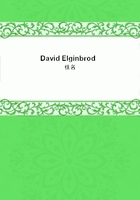
第112章
There's a special providence in the fall of a sparrow.
Hamlet.
When Mrs. Elton left the breakfast table, she went straight to Miss Cameron's room to inquire after her, expecting to find her maid with her. But when she knocked at the door, there was no reply.
She went therefore to her own room, and sent her maid to find Euphra's maid.
She came.
"Is your mistress going to get up to-day, Jane?" asked Mrs. Elton.
"I don't know, ma'am. She has not rung yet.""Have you not been to see how she is?"
"No, ma'am."
"How was it you brought that message at breakfast, then?"Jane looked confused, and did not reply.
"Jane!" said Mrs. Elton, in a tone of objurgation.
"Well, ma'am, she told me to say so," answered Jane.
"How did she tell you?"
Jane paused again.
"Through the door, ma'am," she answered at length; and then muttered, that they would make her tell lies by asking her questions she couldn't answer; and she wished she was out of the house, that she did.
Mrs. Elton heard this, and, of course, felt considerably puzzled.
"Will you go now, please, and inquire after your mistress, with my compliments?""I daren't, ma'am."
"Daren't! What do you mean?"
"Well, ma'am, there is something about my mistress--" Here she stopped abruptly; but as Mrs. Elton stood expectant, she tried to go on. All she could add, however, was--"No, ma'am; I daren't.""But there is no harm in going to her room."
"Oh, no, ma'am. I go to her room, summer and winter, at seven o'clock every morning," answered Jane, apparently glad to be able to say something.
"Why won't you go now, then?"
"Why--why--because she told me--" Here the girl stammered and turned pale. At length she forced out the words--"She won't let me tell you why," and burst into tears.
"Won't let you tell me?" repeated Mrs. Elton, beginning to think the girl must be out of her mind. Jane looked hurriedly over her shoulder, as if she expected to see her mistress standing behind her, and then said, almost defiantly:
"No, she won't; and I can't."
With these words, she hurried out of the room, while Mrs. Elton turned with baffled bewilderment to seek counsel from the face of Margaret. As to what all this meant, I am in doubt. I have recorded it as Margaret told it to Hugh afterwards--because it seems to indicate something. It shows evidently enough, that if Euphra had more than a usual influence over servants in general, she had a great deal more over this maid in particular. Was this in virtue of a power similar to that of Count Halkar over herself? And was this, or something very different, or both combined, the art which he had accused her of first exercising upon him? Might the fact that her defeat had resulted in such absolute subjection, be connected with her possession of a power similar to his, which she had matched with his in vain? Of course I only suggest these questions. I cannot answer them.
At one o'clock, the carriage came round to the door; and Hugh, in the hope of seeing Euphra alone, was the first in the hall. Mrs.
Elton and Lady Emily presently came, and proceeded to take their places, without seeming to expect Miss Cameron. Hugh helped them into the carriage; but, instead of getting in, lingered, hoping that Euphra was yet going to make her appearance.
"I fear Miss Cameron is unable to join us," said Mrs. Elton, divining his delay.
"Shall I run up-stairs, and knock at her door?" said Hugh.
"Do," said Mrs. Elton, who, after the unsatisfactory conversation she had held with her maid, had felt both uneasy and curious, all the morning.
Hugh bounded up-stairs; but, just as he was going to knock, the door opened, and Euphra, appeared.
"Dear Euphra! how ill you look!" exclaimed Hugh.
She was pale as death, and dark under the eyes; and had evidently been weeping.
"Hush! hush!" she answered. "Never mind. It is only a bad headache.
Don't take any notice of it."
"The carriage is at the door. Will you not come with us?""With whom?"
"Lady Emily and Mrs. Elton."
"I am sick of them."
"I am going, Euphra."
"Stay with me."
"I must go. I promised to take care of them.""Oh, nonsense! What should happen to them? Stay with me.""No. I am very sorry. I wish I could."
"Then I must go with you, I suppose." Yet her tone expressed annoyance.